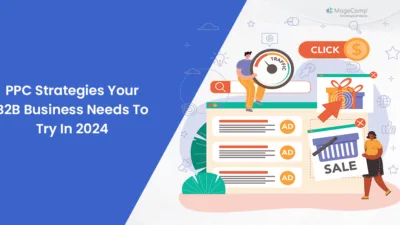In the vast digital expanse of the internet, businesses are continually seeking innovative ways to captivate their audience and elevate their online presence. Enter the blog – a dynamic and versatile platform that holds the key to unlocking new opportunities and driving success in the digital age. But what exactly is a blog, and how can it benefit businesses? Let’s delve into the intricacies of blogging and explore its myriad advantages for businesses.
What is a Blog?
At its core, a blog is an online journal or informational website where individuals or businesses publish regular entries, known as blog posts. These posts typically appear in reverse chronological order, with the most recent content displayed first. Blogs cover a wide range of topics, including personal experiences, industry insights, how-to guides, and more, catering to diverse audiences with varied interests and preferences.
There are over 600 million active blogs across the internet. Websites with active blogs have 434% more indexed pages and 97% more inbound links than those without.
Types of Blogs
Personal Blogs
These are the digital realms where individuals share their personal experiences, reflections, hobbies, and interests. Personal blogs can cover anything from travel adventures to cooking experiments, providing readers with glimpses into the lives and passions of their creators.
Professional Blogs
Tailored for industry experts, professional blogs focus on delivering insightful content related to a specific field or niche. These can include finance blogs offering investment advice, technology blogs discussing the latest innovations, or marketing blogs providing strategies for businesses.
Corporate Blogs
Many businesses utilize blogs as a platform to engage with their audience, establish thought leadership, and showcase their products or services. Corporate blogs often feature company updates, industry insights, customer success stories, and helpful tips relevant to their target market.
Niche Blogs
Niche blogs zoom in on specialized subjects or interests, catering to a particular audience segment. Whether it’s niche hobbies like bird watching or niche professions like forensic science, these blogs delve deep into specific topics, attracting enthusiasts with their specialized content.
Media Blogs
Media blogs encompass a wide range of digital publications, including news blogs, entertainment blogs, and review blogs. These platforms deliver timely news, reviews, and analysis on current events, pop culture, movies, music, books, and more, keeping readers informed and entertained.
Collaborative Blogs
Also known as group blogs, collaborative blogs involve multiple contributors who share the responsibility of creating content. These blogs often gather writers with diverse expertise or perspectives to offer readers a variety of insights on a particular theme or subject.
Guest Blogs
Guest blogs feature content written by guest authors or contributors who are experts in their respective fields. These blogs provide a platform for guest authors to share their knowledge, insights, and opinions with a new audience, while also providing fresh perspectives and diverse voices for the blog’s readers.
Benefits of Blogging for Business
Enhanced Online Visibility
In an era dominated by digital noise, standing out from the crowd is essential for businesses seeking to attract and retain customers. Blogging offers a powerful solution by improving a business’s search engine visibility and driving organic traffic to its website. By consistently publishing fresh, relevant content optimized for search engines, businesses can increase their chances of appearing higher in search engine results pages (SERPs) and reaching a broader audience.
Establishing Authority and Credibility
In today’s competitive landscape, establishing authority and credibility is paramount for businesses looking to gain the trust and loyalty of their target audience. Blogging allows businesses to showcase their expertise, industry knowledge, and thought leadership by sharing valuable insights, analysis, and commentary on relevant topics. By positioning themselves as trusted sources of information and expertise, businesses can build credibility with their audience and differentiate themselves from competitors.
Engaging with Customers
Effective communication is the cornerstone of building strong and lasting relationships with customers. Blogging provides businesses with a platform to engage with their audience in a meaningful and authentic way, fostering two-way communication and dialogue. By soliciting feedback, responding to comments, and addressing customer concerns through blog posts, businesses can demonstrate their commitment to customer satisfaction and strengthen their bond with their audience.
Generating Leads and Conversions
Attracting potential customers and converting them into paying customers is the lifeblood of any business. Blogging can play a pivotal role in this process by serving as a lead generation tool and driving conversions. By creating valuable, informative content that addresses the needs and pain points of their target audience, businesses can attract qualified leads to their website and nurture them through the sales funnel. By incorporating calls-to-action (CTAs) and lead magnets into their blog posts, businesses can encourage visitors to take the next step in their customer journey, whether it’s signing up for a newsletter, downloading a resource, or making a purchase.
Building Brand Awareness
Building brand awareness is essential for businesses looking to expand their reach and attract new customers. Blogging offers an effective way for businesses to raise awareness of their brand and establish a distinct identity in the minds of consumers. By consistently publishing content that reflects their brand values, personality, and voice, businesses can reinforce their brand identity and foster brand loyalty among their audience. Additionally, sharing blog posts across social media channels and other online platforms can help amplify a business’s message and reach new audiences.
How to Build an Effective Business Blog
Here’s a step-by-step guide on how to build an effective business blog:
Define Your Goals and Audience
Before diving into the world of blogging, it’s crucial to define your objectives and understand who your target audience is. Ask yourself: What do you hope to achieve with your blog? Are you aiming to increase brand awareness, generate leads, drive website traffic, or establish thought leadership? Additionally, identify your target audience – who are they, what are their interests, and what challenges do they face? Tailoring your content to resonate with your audience’s needs and preferences is essential for success.
Choose the Right Blogging Platform
Selecting the right platform for your business blog is paramount. Consider factors such as ease of use, customization options, and scalability when evaluating different blogging platforms. Popular options include WordPress, Blogger, and Squarespace, each offering unique features and functionalities to suit various business needs. Choose a platform that aligns with your goals and provides the flexibility and control you need to create a compelling blog.
Develop a Content Strategy
A well-defined content strategy lays the foundation for a successful business blog. Start by conducting keyword research to identify topics and themes relevant to your industry and target audience. Create a content calendar outlining your publishing schedule and the types of content you’ll produce, such as how-to guides, industry insights, case studies, or product updates. Strive for a balance between evergreen content that provides long-term value and timely content that addresses current trends and developments in your industry.
Create High-Quality Content
The quality of your content is paramount to the success of your business blog. Focus on creating informative, engaging, and well-researched posts that offer genuine value to your audience. Use a mix of text, images, videos, and infographics to make your content visually appealing and easy to digest. Incorporate storytelling techniques to captivate your audience and establish an emotional connection with them. Remember to optimize your content for search engines by using relevant keywords, meta tags, and internal links to improve its visibility and reach.
Promote Your Blog
Creating great content is only half the battle – you also need to promote your blog to reach a wider audience. Share your blog posts across your social media channels, email newsletters, and other marketing channels to drive traffic to your website. Engage with industry influencers and collaborators to amplify your reach and attract new readers. Additionally, participate in online communities and forums relevant to your niche to establish yourself as a knowledgeable and trusted source of information.
Analyze and Iterate
Regularly monitor and analyze the performance of your business blog to identify what’s working and what’s not. Track metrics such as website traffic, engagement, and conversions to gauge the effectiveness of your content and promotion efforts. Use this data to refine your content strategy, optimize your blog posts, and experiment with new tactics to improve your results over time. Remember that building a successful business blog is an iterative process that requires continuous learning and adaptation.
Final Thoughts
Blogging is a powerful tool for businesses looking to boost their online presence, engage with their audience, and drive growth. By leveraging the benefits of blogging and adopting a strategic approach to content creation and promotion, businesses can unlock new opportunities, strengthen their relationships with customers, and achieve success in today’s competitive digital landscape.





